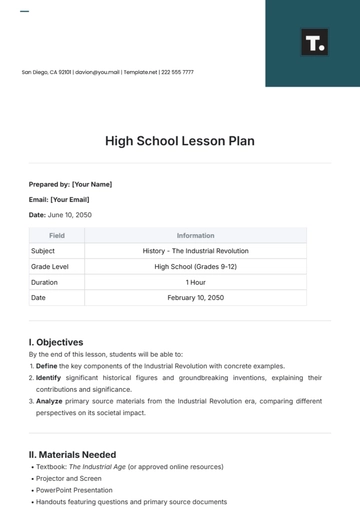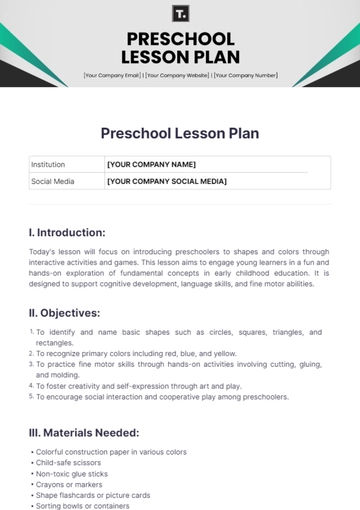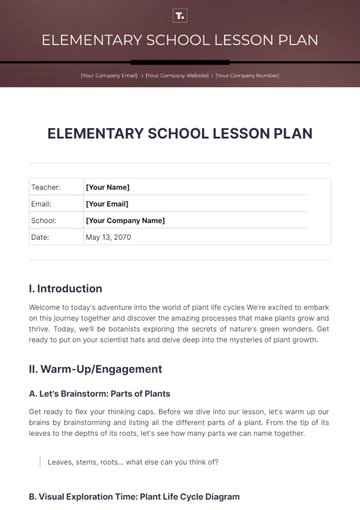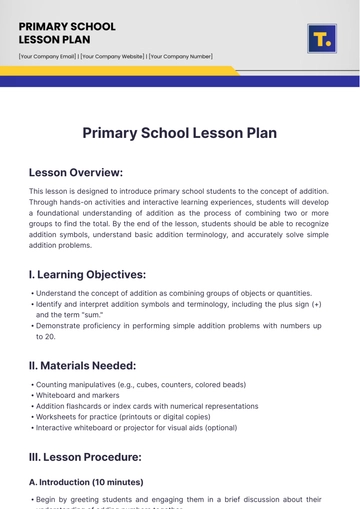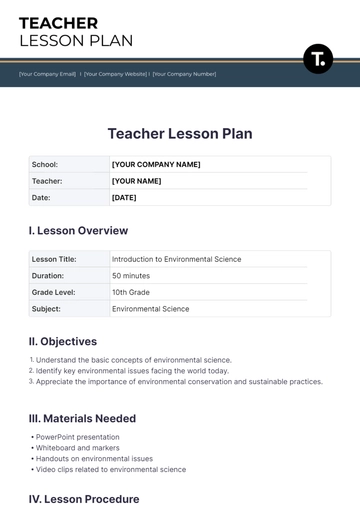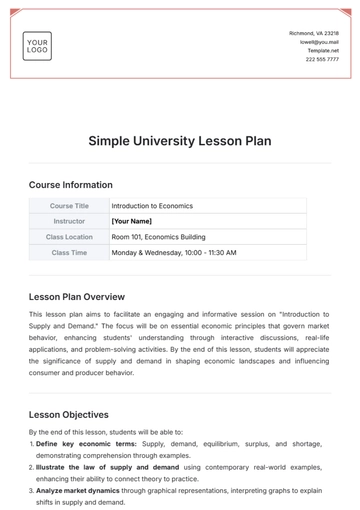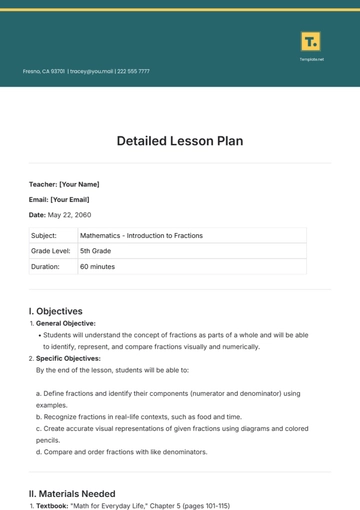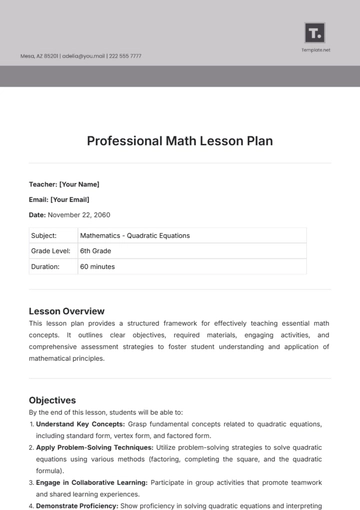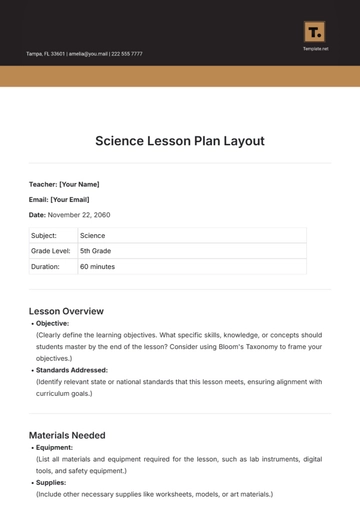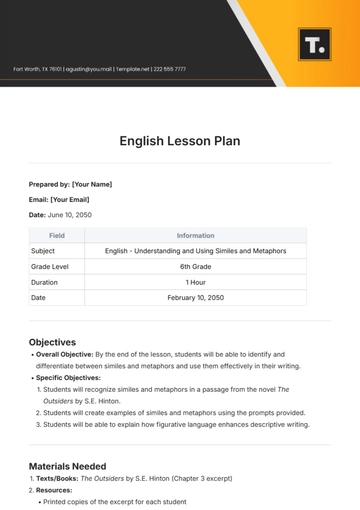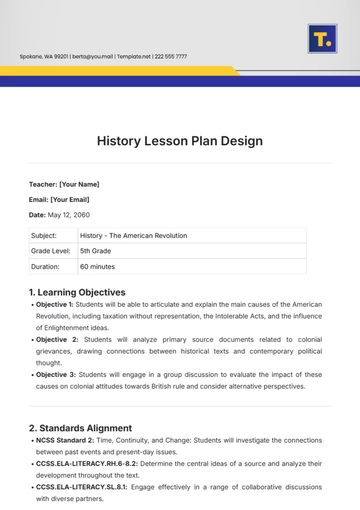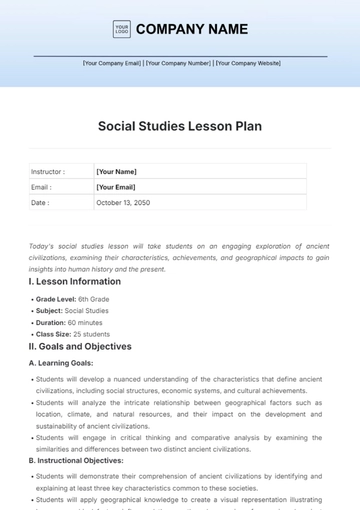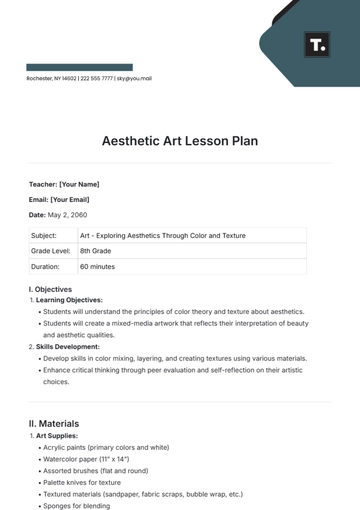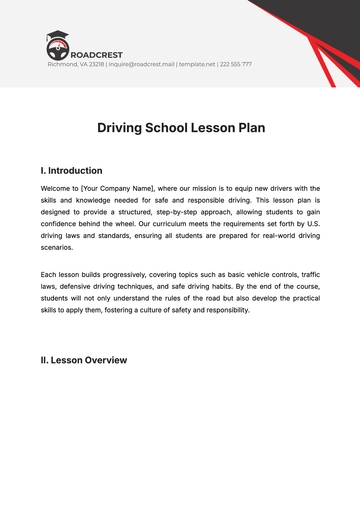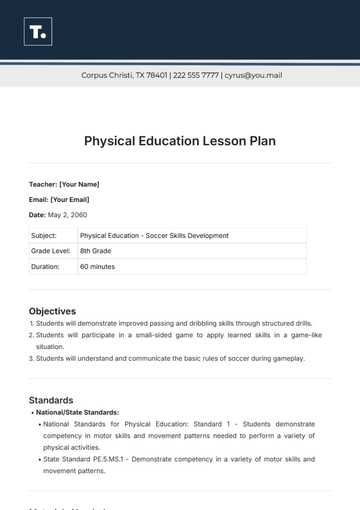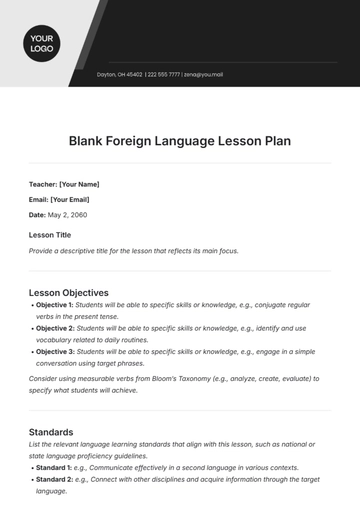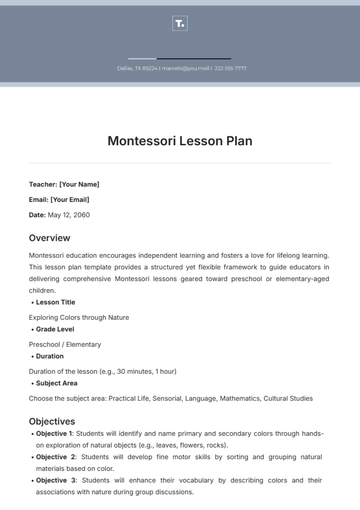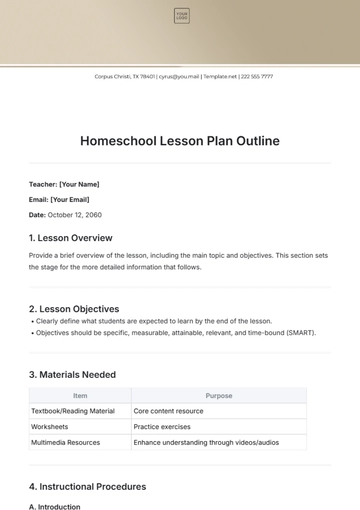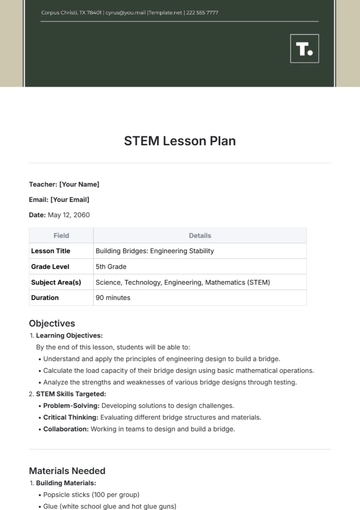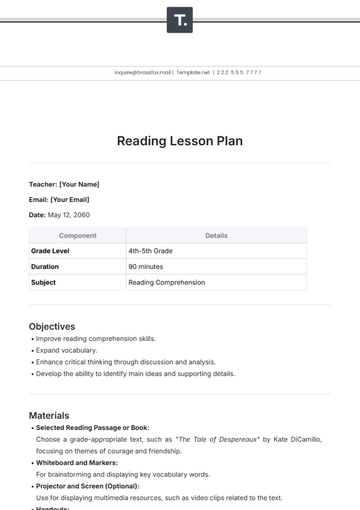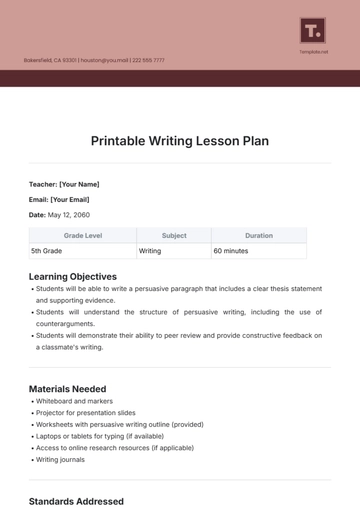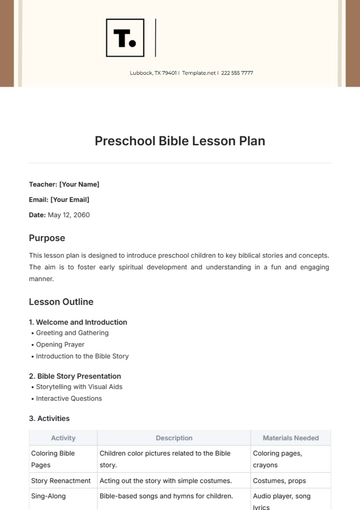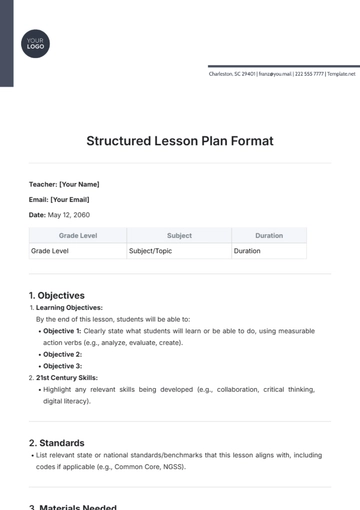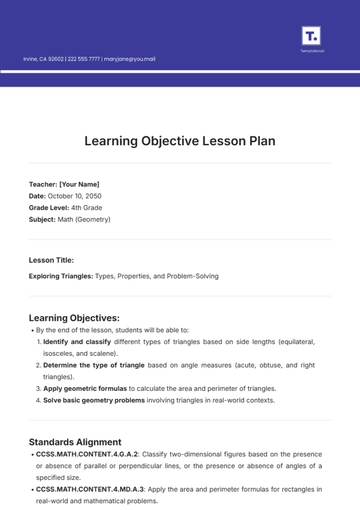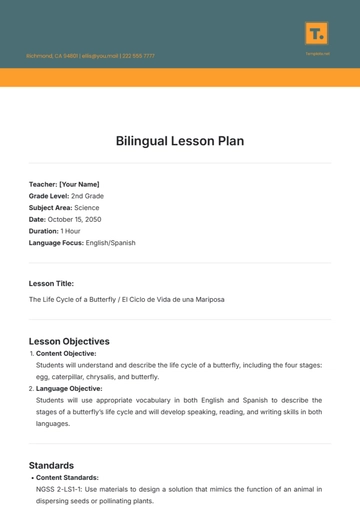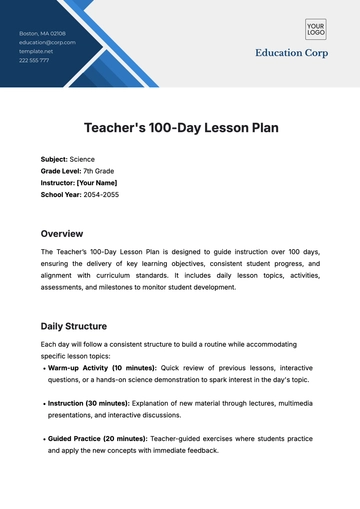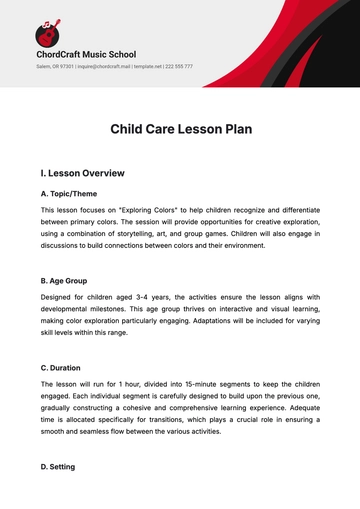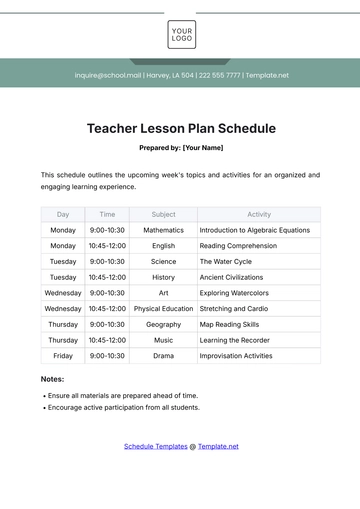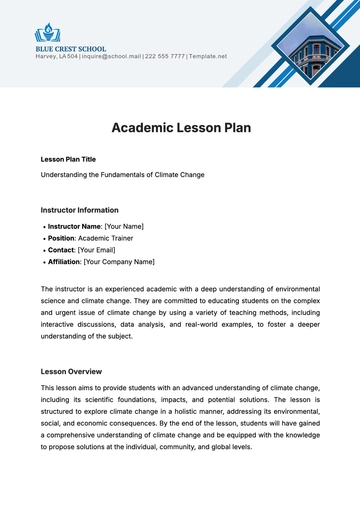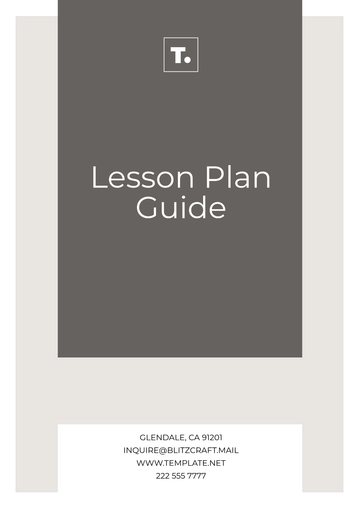Free Monthly Lesson Plan
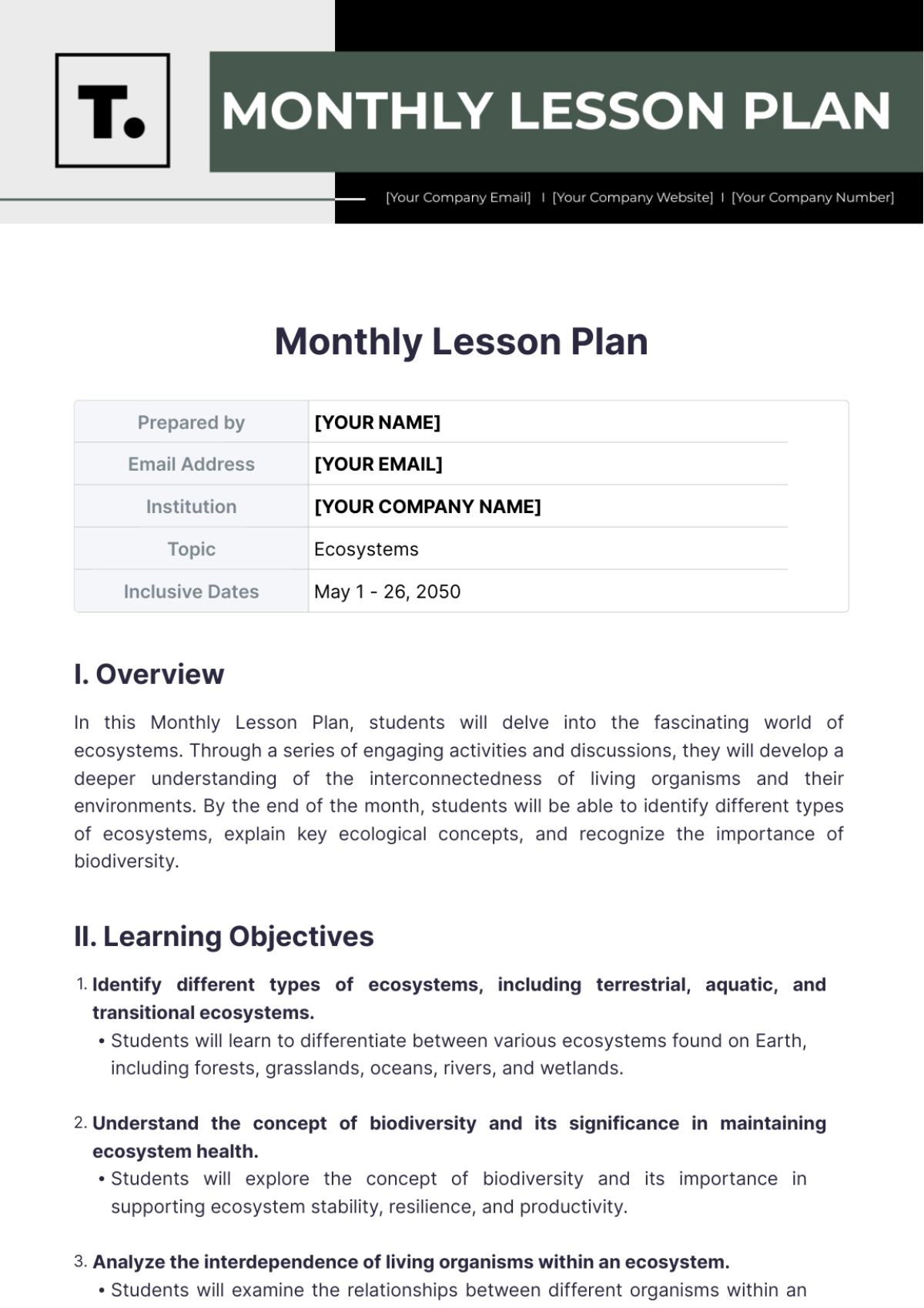
Prepared by | [YOUR NAME] |
|---|---|
Email Address | [YOUR EMAIL] |
Institution | [YOUR COMPANY NAME] |
Topic | Ecosystems |
Inclusive Dates | May 1 - 26, 2050 |
I. Overview
In this Monthly Lesson Plan, students will delve into the fascinating world of ecosystems. Through a series of engaging activities and discussions, they will develop a deeper understanding of the interconnectedness of living organisms and their environments. By the end of the month, students will be able to identify different types of ecosystems, explain key ecological concepts, and recognize the importance of biodiversity.
II. Learning Objectives
Identify different types of ecosystems, including terrestrial, aquatic, and transitional ecosystems.
Students will learn to differentiate between various ecosystems found on Earth, including forests, grasslands, oceans, rivers, and wetlands.
Understand the concept of biodiversity and its significance in maintaining ecosystem health.
Students will explore the concept of biodiversity and its importance in supporting ecosystem stability, resilience, and productivity.
Analyze the interdependence of living organisms within an ecosystem.
Students will examine the relationships between different organisms within an ecosystem and understand how changes in one population can impact others.
Describe the impact of human activities on ecosystems and propose solutions for environmental conservation.
Students will investigate the ways in which human activities, such as deforestation, pollution, and climate change, affect ecosystems and explore strategies for mitigating these impacts.
Demonstrate effective communication skills through group discussions, presentations, and written assignments.
Students will engage in collaborative discussions, present their findings and solutions, and communicate their understanding through written assignments.
III. Weekly Breakdown
Week 1: Introduction to Ecosystems
Date | Topics Covered | Activities |
|---|---|---|
May 1st - May 5th | What is an ecosystem? | Interactive lecture on ecosystem basics |
Types of ecosystems | Group discussion on ecosystem examples | |
Components of an ecosystem | Field trip to a local park or nature reserve to observe ecosystems |
Week 2: Biodiversity and Interdependence
Date | Topics Covered | Activities |
|---|---|---|
May 8th - May 12th | Definition of biodiversity | Guest speaker session with a local biologist or environmental scientist |
Importance of biodiversity | Hands-on activity: Constructing food webs | |
Food webs and chains | Class debate on the ethical considerations of human impact on biodiversity |
Week 3: Human Impact on Ecosystems
Date | Topics Covered | Activities |
|---|---|---|
May 15th - May 19th | Deforestation and habitat destruction | Documentary screening and guided discussion |
Pollution: air, water, and soil pollution | Case study analysis: Investigating specific examples of human activities | |
Climate change and its consequences | Group project: Designing eco-friendly solutions to local environmental challenges |
Week 4: Conservation and Action
Date | Topics Covered | Activities |
|---|---|---|
May 22nd - May 26th | Strategies for ecosystem conservation | Presentation of group projects |
Individual and collective action | Guest speaker presentation from a local environmental organization | |
Role of environmental organizations | Reflection and action planning session |
IV. Assessment
Weekly Quizzes: Short quizzes at the end of each week to assess understanding of key concepts.
Group Projects: Evaluation of group projects based on creativity, research, and presentation skills.
Class Participation: Active participation in discussions, activities, and presentations.
V. Resources
Resource Type | Title | Description |
|---|---|---|
Textbooks | "Ecosystems: A Comprehensive Guide" | A comprehensive textbook covering various aspects of ecosystems |
Online Articles |
|
|
Videos |
|
|
Field Trip Forms | Permission Forms | Attached to the email for field trip approval |
VI. Support for Diverse Learners
Differentiated Instruction: Modification of activities and assessments to accommodate diverse learning needs and styles.
English Language Learners (ELL): Supplementary materials and language support for ELL students to enhance comprehension.
Special Education: Individualized accommodations and support for students with special needs to ensure full participation.
VII. Parent and Community Involvement
Parent Communication: Regular updates on lesson topics, activities, and student progress via newsletters, emails, or parent-teacher conferences.
Community Engagement: Collaboration with local organizations, businesses, and experts to enrich learning experiences through guest speakers, field trips, and community projects.
VIII. Conclusion
Through this Monthly Lesson Plan, students will not only gain knowledge about ecosystems but also develop critical thinking skills, environmental awareness, and a sense of responsibility towards the planet. By actively engaging with the material and participating in hands-on activities, students will be empowered to become informed global citizens who are capable of making positive contributions to the conservation of our natural world.
- 100% Customizable, free editor
- Access 1 Million+ Templates, photo’s & graphics
- Download or share as a template
- Click and replace photos, graphics, text, backgrounds
- Resize, crop, AI write & more
- Access advanced editor
Maximize your productivity with the Monthly Lesson Plan Template from Template.net. This customizable and editable template is designed to simplify your planning process. Effortlessly tailor your lessons to meet your specific needs using our innovative AI Editor Tool. Perfect for educators seeking an efficient and effective way to organize their curriculum.
